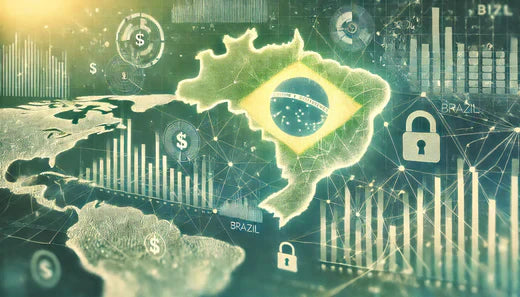
Pix and the Federal Revenue Service: What changes with the new rules?
Date: January 14, 2025
Recently, the Brazilian Federal Revenue Service clarified changes related to Pix, refuting false information circulating on social media. According to a BBC article, the system will not be taxed or monitored daily. Check out what's new and how this affects users.
What has changed with Pix?
Although Pix transactions continue to operate normally, new rules have been established by the Brazilian Federal Revenue Service. Normative Instruction RFB No. 2,219/24 adjusts obligations for banks and financial institutions, which must now report global transactions exceeding:
- R$ 5,000 per month for individuals.
- R$15,000 per month for legal entities.
Important: Only the total transaction values are reported, without details about origin, destination, or beneficiaries.
Context: Before these changes, other payment methods were already monitored by stricter criteria:
- Credit cards and deposits: Amounts above R$ 2,000 for individuals and R$ 6,000 for legal entities.
The tax authorities argue that the goal is to prevent taxpayers from being unfairly flagged for audit, as well as to identify suspicious transactions linked to financial crimes.
Will Pix be subject to a fee?
No.
According to the Brazilian Federal Revenue Service, there are no fees or taxes charged on Pix . The Constitution prohibits taxes on financial transactions, and no proposal currently being processed in Congress includes changes to this aspect.
Pix-related scams: How to protect yourself
With the new rules, scammers have been exploiting the issue to commit fraud. A common example is sending fake messages charging non-existent fees to avoid the blocking of CPF numbers (Brazilian taxpayer identification numbers).
The tax authority warns: "Be wary of messages that request unexpected payments or personal information."
Tips to avoid scams:
- Do not click on unknown links or provide personal information in suspicious messages.
- Verify the authenticity of communications directly on the e-CAC Portal or on the official website of the Federal Revenue Service.
- Avoid opening attachments from suspicious sources.
Will Pix be monitored daily?
No.
The Brazilian Federal Revenue Service reaffirms that the system updates aim to combat financial crimes while preserving banking secrecy. Detailed data, such as who sent or received transactions, are not shared with the authorities.
According to the BBC article, monitoring occurs in cases of atypical financial transactions, especially those related to crimes such as money laundering.
Deadlines and requirements
Financial institutions must submit semi-annual reports on global transactions:
- August 2025
- February 2026
Failure to comply may result in fines, in accordance with current legislation.
Conclusion
Despite the new rules, Pix remains a secure and practical tool, with no additional costs for users. The Federal Revenue Service emphasizes that the goal of the changes is to improve the oversight system and ensure greater transparency, without harming the average citizen.
Sources:
- BBC Brazil
- BBC Brazil Article
- Federal Revenue Service
